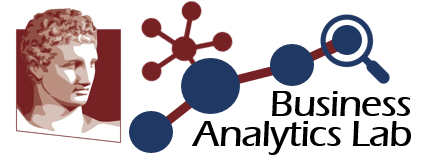
Developing trustworthy AI systems
Presenter: Theodoros Evgeniou, Professor INSEAD Date: 05 January 2022
Abstract
While research in AI has been focusing for the past 50 years on the AI algorithms themselves, little work has been done on how to (a) ensure the AI systems are safe and trustworthy, (b) they are developed using sound and robust software/product development processes and tools. Discussion in both academia and the industry has shifted in recent years on trustworthy AI (“ethical AI”, “AI risks”, “responsible AI”, etc) and regulators (e.g. in the EU) are also developing new rules the companies will need to abide to as they develop or procure and deploy AI systems. In this seminar (and open discussion) I will present an overview of key aspects of what is currently considered part of so-called “trustworthy AI”, some tools and practices that are under development to support the implementation of trustworthy AI, as well as some key initiatives by organisations such as the OECD and the IEEE in this space. One of the goals of this discussion is also to explore together potentially synergies between regulation, AI, and software engineering research.
Theos Evgeniou is Professor of Decision Sciences and Technology Management at INSEAD and director of the INSEAD Executive Education program on Transforming your Business with AI.
He has been working on Machine Learning and AI for the past 25 years, on areas ranging from AI innovations for business process optimization and improving decisions in Marketing and Finance, to AI regulation, as well as on new Machine Learning methods. His research has appeared in leading journals, such as in Science Magazine, Nature Machine Intelligence, Machine Learning, Lancet Digital Health, Journal of Machine Learning Research, Management Science, Marketing Science, Harvard Business Review magazine, and others.
Professor Evgeniou has been a member of the OECD Network of Experts on AI, an advisor for the BCG Henderson Institute, and a World Economic Forum Academic Partner for Artificial Intelligence. He gives talks and consults for a number of organisations in his areas of expertise, and he has been involved in developing hedge fund strategies with more than $100 million invested. He has received four degrees from MIT, two BSc degrees simultaneously, one in Computer Science and one in Mathematics, as well as a Master and a PhD degree in Computer Science.